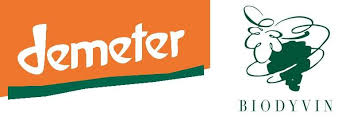Livraison à partir de 9.50€ pour la France !
Franco à 250€ de commande pour le France continentale et la Belgique.
Grace Winery

Grace Wine is a star in the world of Japanese wine! At the Decanter World Wine Awards, the largest wine competition in the world, it was the first area of Japan to win the gold medal. And he managed to renew excellence for 6 consecutive years!
Location : Katsunama (Japan)Vineyard: 12 hectares
Site : www.grace-wine.com

The vineyards are located in the Yamanashi IG, the cradle of wine production in Japan and the first wine region officially recognized by the Japanese government.
The Yamanashi valley is famous for its orchards (grapes, fishing, cherry, khaki, apple and yuzu) for a long time thanks to its terroir and its particular climate. It is surrounded by the three highest mountains in the country: Mount Fuji, Mont Kitadake and Mont Ainodake.
This brings a significant temperature difference between day and night. In addition Akeno, one of the vineyards in our field, benefits from the most important sunshine in Japan.
What is the story of Grace Wine?
We are a 20 hectare family area founded in 1923 in the Yamanashi region.
That year, Kanto's great earthquake devastated a large part of Tokyo. It was a terrible disaster, more than 100,000 people died or disappeared. We, Yamanashi, are located 100 km from Tokyo. My ancestor developed the first vintage in the form of a tribute to all the people who were affected by this sad event. The Koshu grape was already there. It has been cultivated for over 1000 years in Japan!
Ayana, after studying in Bordeaux and Stellenbosch, then worked in Argentina, Chile, Australia or New Zealand, what are you passionate about Japanese viticulture?
I am part of the fifth generation to work for the family estate. I have been there since 2008. My mission was to improve the quality of Japanese wines, especially Koshu. And I always wanted this grape to be recognized worldwide as a grape that can produce great white wines. Koshu is for me intimately linked to my family and my hometown.
Above all, I like viticulture and I loved my different experiences in prestigious foreign wine regions.
Do you cultivate Koshu, what is the story and the personality of this grape?
The Koshu grape is cultivated in Japan for over 1000 years. It is said that it happened from the Caucasus region by China with the introduction of Buddhism. It was planted for its energy intake thanks to its natural sweetness.
His vinification in Japan began only around 1870. Until this date, Koshu had never been used to make wine, but it has always been "precious". For example it was used as a gift for shogun. Shogun is the samurai who was responsible for the administration of the feudal government.
I particularly like the personality of Koshu, including its delicacy, its purity and its authenticity. It symbolizes Japanese elegance
We offer the cuvées Hihiyama Vineyard and Akeno Misawa Vineyard. What are their particularities?
The two vineyards are located 40 km from each other, in the IG Yamanashi, and each of them offers expressions totally different in my eyes.
The Hadiyama vineyard is located at an altitude of 500 to 550 m in the village of Katsunuma, very traditional and located in the center of wines production in Japan. The wine is crunchy, pure and complex thanks to the clay and granite soils of the valley.
The Misawa vineyard is located at 700 m altitude in a mountainous area of the village of Akeno, known to have the longest hours of sunshine in Japan. The soil is volcanic. The Koshus of this vineyard are therefore quite unique: small bays, good sugar level, high content in malic acid. The yield is low in order to obtain concentrated fruits.
By favoring native yeasts and spontaneous malolactic fermentation, the Koshu Misawa vineyard reflects both the terroir and the character of the grape. I think this wine best demonstrates the finesse and richness of Koshu.
What does the name organize mean?
This can be so diverse depending on the personality of their sire, that it is easier to define what it is not. An author wine is anything but a standard, stereotypical wine, made to please as many people as possible. It is therefore rarely produced in millions of copies, copying itself from vintage in vintage.
An author wine is therefore a wine that does not look like that of the neighbor. Which from year to year will evolve according to the vagaries of the weather and the mood of the author - the two that can be linked. Because the author does not rely on market studies to carry out his boat. He makes his wine as he feels, as he likes, as he can, sometimes ... and too bad if he does not please everyone.
This is why author wines are sometimes classified as "table wine" or "France wine". Because the winemaker did not plan the authorized grape variety*, makes the assembly or vinification recommended in the name **. He is often a bit rebellious, our author. But that is why we like it! ... That said, author's wines are not systematically marginal: they are present in most of the appellations, and can be part of the elite of these this***. Because they are not content to have personality: they are good, in addition! With in general aDegree of TorchabilityVery high: we never tire of it at the end of the first sip.
As author's wines are not chaptalized, levied, hacked ... They can have very different profiles depending on the vintage. It is up to us (resellers and consumers) to accept them as they are, and to remain faithful to the producers, because they need us to continue their activity.
______________________________
* For example, theTouriga Nacionalin the Minervois, or theSyrahIn Forez ribs. They are crazy, these authors!
** Some winegrowers dare to produceSweety with Mourvèdre or oneNatural sparkling with Pineau d'Aunis
*** Like those of Jean-François Ganevat in the Jura or Zind-Humbercht in Alsace









